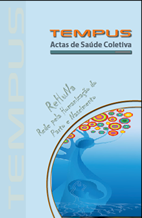Abstract
Childbirth is a very powerful and intense experience for the whole family and implies changes in the way each one sees oneself and the other, as well as each recalls the experience. For the author, to humanize childbirth is to know it as part of a history. Here, we understand history as a process of integration and articulation of experiences (personal, of the couple, of the family and cultural) in order to build an identity of becoming a father and a mother, and to erect a personal sense of maternity and paternity. There is no history without time. In this sense, to humanize childbirth means to include time. To include it is also to recognize the human limit, its condition: to be human is to be limited, finite in time and mortal. It is upon these two pillars, time and death (parting), that this text seeks to fundament childbirth humanizationA Tempus garante critérios rigorosos, por meio de avaliação sistemática. Os autores se responsabilizam pela veracidade e ineditismo do trabalho cabendo a eles a cessão de direitos de publicação à revista. A confiabilidade dos conteúdos e a marca própria de apresentação tem como objetivo uma comunicação personalizada, adaptada aos padrões da revista, na medida em que adota critérios de excelência exigidos por seus usuários e especialistas, considerando os rigores da comunicação científica. Os autores devem especificar sua contribuição individual na concepção, delineamento, execução do trabalho, análise ou interpretação dos dados, redação e aprovação final do manuscrito. Incluir Fontes de financiamento e de apoio logístico das pesquisas. Ao final da submissão do artigo, os autores devem enviar uma declaração de cessão de direitos de publicação à Revista TEMPUS , assinada e no formato PDF (Portable Document Format ): Modelo da declaração de cessão de direitos.
